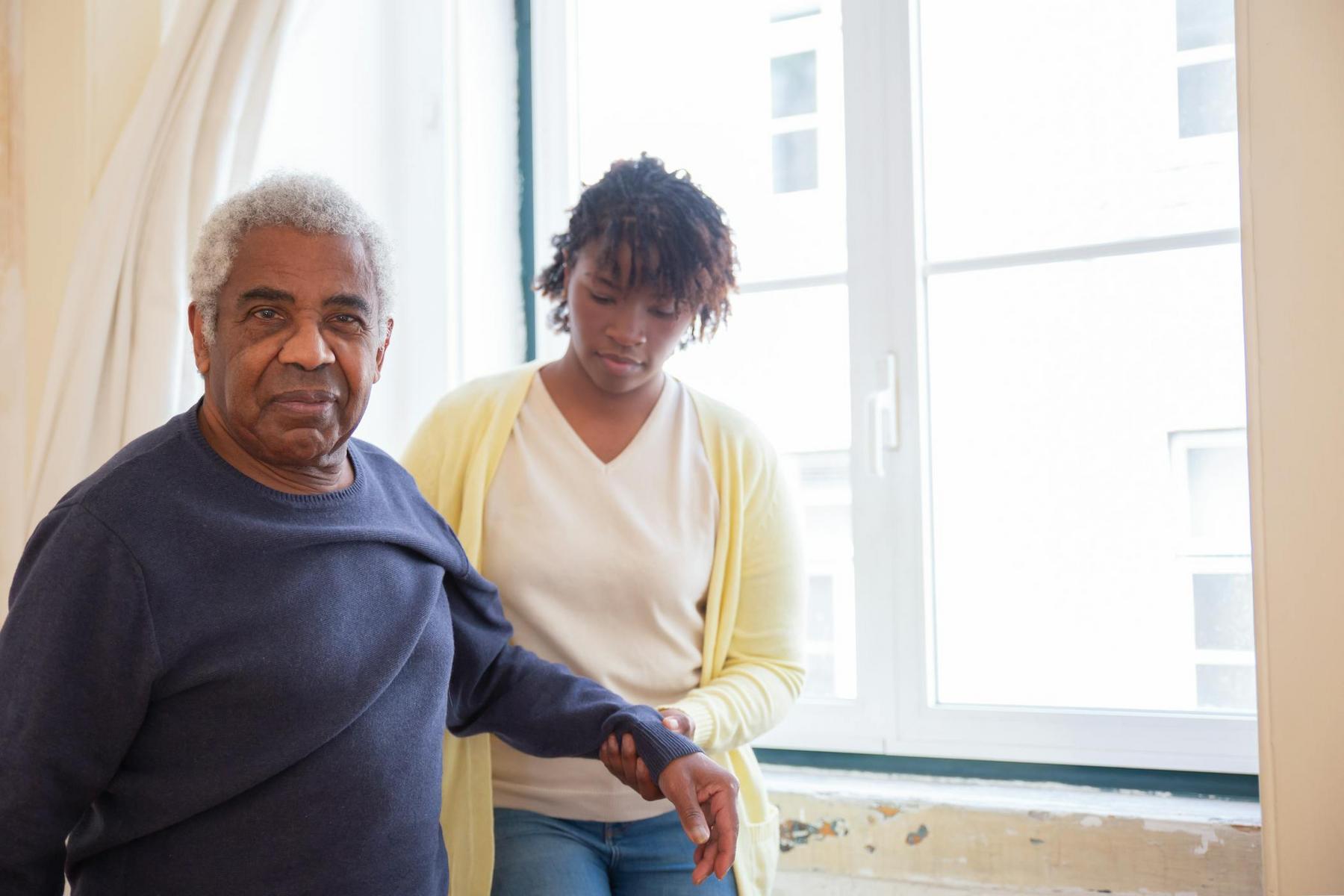When your loved one needs assistance at 2 AM, or when a medical emergency strikes on a Sunday evening, the weight of uncertainty can feel overwhelming. For families and individuals living with disability in Cairns and Brisbane, knowing that professional support is available around the clock isn’t just comforting—it’s essential for safety, dignity, and peace of mind.
The reality of disability care doesn’t follow a nine-to-five schedule. Needs arise unexpectedly, personal care can’t wait for business hours, and emergencies don’t check the calendar. Yet many families find themselves unsure where to turn when the clock strikes midnight or when a public holiday arrives. Understanding your options for accessing after-hours disability support in Cairns can transform anxious uncertainty into confident preparedness.
Why Is After-Hours Disability Support Essential in Far North Queensland?
Living with disability presents unique challenges that extend well beyond traditional business hours. Whether it’s assistance with personal care, medication management, mobility support, or simply having someone present who understands your needs, after-hours support forms the backbone of independent living and family wellbeing.
The tropical climate and geographic isolation of Cairns and surrounding Far North Queensland regions create specific considerations for disability support. Medical facilities may be dispersed, families often live at distance from specialist services, and the tourist economy means many local services operate differently during peak seasons.
After-hours disability support serves several critical functions:
Access to trained carers who can respond to immediate personal care needs prevents hospital admissions and maintains dignity during vulnerable moments. When bowel care can’t wait, when assistance with feeding is required, or when someone needs help transferring from bed to wheelchair, having skilled support available immediately prevents both physical harm and emotional distress.
Respite for primary carers remains equally vital. Family members who provide round-the-clock care experience exhaustion, stress, and their own health challenges. Knowing professional support can step in during evenings, weekends, or overnight allows carers to rest, attend to their own needs, and sustain their caring role long-term.
Crisis prevention and management protect both individuals and their support networks. When behaviours of concern escalate, when mental health challenges intensify, or when unexpected medical situations arise, having immediate access to trained professionals who understand disability can prevent situations from becoming genuine emergencies.
What Types of 24/7 Care Options Are Available in Cairns?
Accessing after-hours disability support in Cairns encompasses several distinct service types, each designed to meet different needs and circumstances. Understanding these options helps you identify which services best suit your situation.
On-Call Support Services
Many disability providers maintain on-call systems where qualified support workers can be contacted outside standard hours. These services typically involve a phone consultation first, with capacity to dispatch a worker if required. On-call support proves particularly valuable for participants living in supported independent living arrangements or those with predictable but irregular support needs.
Rostered Overnight Support
For individuals requiring consistent overnight assistance, rostered overnight support provides peace of mind through regular, scheduled care. This might include active overnight support where a carer remains awake and engaged, or sleepover support where a qualified worker sleeps on-site and responds to needs as they arise.
Overnight support workers assist with personal care, medication administration, repositioning to prevent pressure injuries, management of medical equipment, and providing reassurance for participants who experience anxiety or confusion during night hours.
Emergency Respite Care
When primary care arrangements break down unexpectedly—whether through carer illness, family emergency, or breakdown of existing support—emergency respite care provides immediate alternative arrangements. This might occur in the participant’s home, in a specialist respite facility, or within another supported accommodation setting.
High-Intensity Support
Participants with complex health needs, challenging behaviours, or requiring constant supervision often need high-intensity support that operates continuously. This intensive level of care involves multiple support workers, specialised training, and coordination with allied health professionals, operating seamlessly across day and night.
How Does the NDIS Support After-Hours Care Needs in Queensland?
The National Disability Insurance Scheme (NDIS) recognises that disability support needs don’t adhere to business hours, and funding arrangements reflect this reality. Understanding how your NDIS plan can accommodate after-hours support helps you access the services you need when you need them.
Funding Categories for After-Hours Support
NDIS plans allocate funding across various support categories, with after-hours care potentially drawing from several budget areas. Core Supports—specifically Daily Living and Social and Community Participation—often cover after-hours personal care, household assistance, and overnight support.
Capacity Building Supports may fund training for yourself or your support workers in managing specific situations that arise outside business hours. This might include behaviour support strategies, emergency response procedures, or communication techniques.
For participants with complex needs, funding may be allocated specifically for 24/7 support arrangements, recognising that continuous care forms an essential component of their safety and wellbeing.
Loadings and After-Hours Rates
NDIS pricing arrangements include specific loadings that apply to support delivered outside standard hours. These loadings compensate providers for the additional costs associated with staffing overnight shifts, weekend services, and public holiday support.
Understanding these loadings helps you plan your support budget:
| Service Timing | Loading Type | Considerations |
|---|---|---|
| Weekday evenings (6pm–midnight) | Evening loading | Standard rate increase for evening support |
| Overnight (midnight–6am) | Night loading | Higher rate reflecting overnight shift costs |
| Weekends (Saturday–Sunday) | Weekend loading | Increased rates for Saturday and Sunday services |
| Public holidays | Public holiday loading | Highest loading rate reflecting premium conditions |
| Emergency/unplanned | Short notice cancellation | May incur additional fees when booked at short notice |
The key principle is that while after-hours support costs more per hour, NDIS funding recognises this necessity. Your plan should be developed with your genuine needs in mind, including those that arise outside business hours.
When Should You Access Emergency or Crisis Support Services?
Distinguishing between routine after-hours support needs and genuine crisis situations ensures you access the right service at the right time. Accessing after-hours disability support in Cairns involves understanding this crucial distinction.
Routine After-Hours Needs
Routine after-hours support includes predictable or manageable situations that occur outside business hours but don’t constitute emergencies. This might involve scheduled overnight personal care, regular evening support for meal preparation and bedtime routines, or planned weekend activities requiring support worker assistance.
These situations are best managed through pre-arranged support services, where your regular provider schedules workers and maintains continuity of care.
Crisis and Emergency Situations
Genuine crisis situations demand immediate intervention and may involve risk of harm to the participant or others. These include severe behavioural incidents, acute mental health crises, breakdown of care arrangements leaving someone without essential support, or medical emergencies requiring coordination with health services.
Queensland’s NDIS After Hours Crisis Referral Service (AHCRS) operates as a safety net for participants experiencing crisis outside business hours. This service provides immediate telephone support, crisis intervention, and where necessary, dispatch of specialist crisis support workers.
Medical emergencies always warrant calling 000 first. Once immediate medical needs are addressed, crisis support services can assist with managing disability-specific needs, liaising with hospital staff, and ensuring appropriate care arrangements are established.
Preventing Crisis Through Planning
The most effective approach to after-hours support involves proactive planning that prevents routine situations from escalating into crises. Your NDIS plan development should include candid discussion about when support needs arise, what constitutes your typical after-hours requirements, and what backup arrangements exist when primary supports are unavailable.
Behaviour support plans, when relevant, should clearly outline strategies for managing challenging behaviours during evening and overnight periods, including when to escalate concerns and who to contact.
How Do You Choose the Right After-Hours Support Provider in Cairns?
Selecting a disability support provider for after-hours care requires careful consideration of several factors. The relationship between participant and provider becomes even more significant when support occurs during vulnerable night-time hours or in crisis situations.
Local Presence and Response Times
Geography matters significantly in Far North Queensland. A provider with established presence in Cairns and familiarity with local health services, community resources, and the unique characteristics of the region responds more effectively to urgent needs.
Response time capabilities vary considerably between providers. Understanding how quickly a support worker can reach you during evenings, overnight, or on weekends helps you assess whether a provider can genuinely meet your after-hours needs.
Staff Training and Experience
After-hours support workers require specific skills beyond standard disability support capabilities. Look for providers whose staff receive training in crisis de-escalation, emergency first aid, medication administration, manual handling, and communication with emergency services.
Experience with participants who have similar support needs to yours matters tremendously. A worker experienced in supporting participants with high physical care needs brings different skills than one specialising in psychosocial support, though both may be excellent at what they do.
Consistency and Continuity
While accessing after-hours disability support in Cairns sometimes involves unfamiliar workers during genuine emergencies, the best outcomes occur when consistent, familiar support workers provide overnight and weekend care. This consistency reduces anxiety, maintains routines, and ensures workers understand your individual needs, preferences, and communication style.
Cultural Understanding and Compatibility
For Aboriginal and Torres Strait Islander participants, for culturally and linguistically diverse families, and for participants with specific religious or cultural practices, finding providers who understand and respect these aspects of identity creates more appropriate and comfortable care relationships.
Comprehensive Service Offerings
Providers offering integrated services across multiple support types often coordinate after-hours care more effectively. When the same provider manages your daily support, respite care, and after-hours needs, communication improves, familiarity increases, and you avoid the complexity of coordinating multiple organisations.
Building Your After-Hours Support Network Across Cairns and Brisbane
Whether you reside in Cairns, the surrounding Tablelands, or Brisbane, establishing a robust network of support options before you need them provides security and peace of mind. This network might include your primary support provider’s after-hours services, backup providers for when your first choice is unavailable, crisis support contacts, and connections with community organisations.
Keep essential contact information readily accessible—programmed into phones, written clearly near telephones, and shared with family members and key supports. This list should include your primary support provider’s after-hours number, NDIS After Hours Crisis Referral Service, relevant health professionals, and emergency contacts.
Regular review of your after-hours support arrangements ensures they continue meeting your evolving needs. As your situation changes, your support requirements may shift, and your NDIS plan should reflect your genuine after-hours needs.
Communication with your support coordinator or Local Area Coordinator about after-hours challenges you’ve experienced helps improve future planning. If current arrangements aren’t working, if you’ve needed to access crisis support repeatedly, or if you’re finding gaps in available services, these conversations can lead to plan adjustments that better meet your needs.
Understanding Your Rights to After-Hours Support
NDIS participants have the right to access supports that enable them to live independently, participate in their community, and maintain their health and wellbeing. When these needs arise outside business hours, you maintain the same rights to quality, safe, respectful support.
The NDIS Quality and Safety Commission oversees disability service provision across Queensland, including after-hours and crisis services. If you experience concerns about the quality or safety of after-hours support, you have the right to raise complaints and expect them to be taken seriously and investigated appropriately.
Your NDIS plan belongs to you, and you direct how your funding is used to meet your needs. If after-hours support is essential for your safety, dignity, and independence, your plan should reflect this reality through appropriate funding allocations.
Creating Peace of Mind Through Prepared After-Hours Support
The difference between anxious uncertainty and confident preparedness often lies in taking the time now to understand your options, establish relationships with providers, and ensure your NDIS plan reflects your genuine needs. Accessing after-hours disability support in Cairns becomes significantly less stressful when you’ve already identified your support network, clarified your funding arrangements, and established clear communication channels.
For families and individuals living with disability across Far North Queensland and Brisbane, knowing that compassionate, skilled support is available whenever needed provides more than practical assistance—it provides the freedom to live fully, knowing that help is always within reach.
Have questions? Need support? Reach out to us here at Advanced Disability Management. Our experienced team provides compassionate after-hours and 24/7 disability support across Cairns and Brisbane, ensuring you and your loved ones receive the care you need, whenever you need it.
What’s included in NDIS after-hours support rates in Cairns?
NDIS after-hours support rates include the cost of providing qualified support workers during evenings, overnight, weekends, and public holidays. These rates incorporate loadings that compensate providers for the additional costs of maintaining staffing outside business hours. The specific loading varies depending on when support is delivered—evening rates differ from overnight rates, and public holiday rates reflect premium conditions. Your NDIS funding should account for these loadings when after-hours support forms part of your regular care needs.
How quickly can after-hours support reach my home in Cairns?
Response times for after-hours disability support vary depending on the type of service requested and provider capacity. Pre-scheduled after-hours support arrives at your agreed time. For unplanned needs, on-call services typically aim to respond within one to two hours, though this depends on worker availability and your location. Crisis services prioritise urgent situations and work to provide immediate telephone support with dispatch of workers when situations involve safety concerns. Always call 000 first for medical emergencies.
Can I use my NDIS funding for regular overnight support?
Yes, NDIS funding can be used for regular overnight support when this forms part of your reasonable and necessary supports. This might include active overnight care where a worker remains awake providing continuous support, or sleepover support where a worker sleeps on-site and responds to needs as they arise. Your NDIS plan should specifically identify overnight support needs during plan development to ensure appropriate funding is allocated within your Core Supports budget.
What’s the difference between emergency respite and after-hours support?
After-hours support refers to regular or planned disability support services delivered outside standard business hours—be it evenings, weekends, overnight, or public holidays—whereas emergency respite care specifically addresses situations where primary care arrangements break down unexpectedly, requiring immediate alternative care. Emergency respite is characterised by its unplanned, urgent nature rather than solely by the timing of its delivery.
Who provides crisis support for NDIS participants in Queensland after hours?
The NDIS After Hours Crisis Referral Service (AHCRS) provides crisis support for NDIS participants experiencing genuine crisis situations outside business hours. This service offers immediate telephone support, crisis intervention, and, where necessary, coordinates the dispatch of crisis support workers. For medical emergencies, always call 000 first before seeking crisis support for disability-specific needs.



